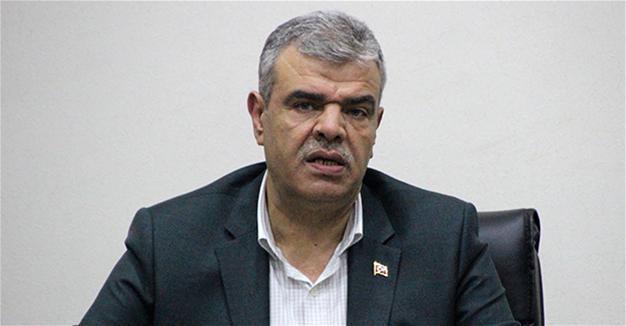No room for ‘terrorist’ YPG at Syria talks, says Turkish deputy PM
ANKARA

AA photo
Turkey’s allies are still providing weapons to the Syrian Kurdish People’s Protection Units (YPG), Turkish Deputy Prime Minister Veysi Kaynak said Jan. 11, asking “what business does a terror group have at the peace table?”
The YPG, which is the military wing of the Syrian Kurdish Democratic Union Party (PYD), is one of the sticking points of the strained Turkey-United States relations.
While Turkey regards the YPG and PYD as terror organizations due to their ties to the outlawed Kurdistan Workers’ Party (PKK), with whom Turkey has been in armed clashes since the mid-1980s, the U.S. sees them as a reliable partner in their fight against the Islamic State of Iraq and the Levant (ISIL).
The peace table Kaynak was referring to is the Syrian talks planned to be held in the Kazakh capital of Astana on Jan. 23.
Kaynak’s remarks came one day after the U.S. State Department said the PYD needed to be part of the political process in Syria.
In a daily press conference, U.S. State Department Deputy Spokesperson Mark Toner was asked whether the U.S. considered the PYD as part of the Syrian opposition and if the State Department would support the PYD to take part in any of the meetings organized by the U.N.-led process.
“This process has to include all Syrians, and that includes the Syrian Kurds,” Toner said, adding that the participants of the meetings were “really for the groups involved and the Syrian people to determine.”
“At some point, [the PYD] have to be a part of this process, is our consideration,” he added.
The PYD and YPG are part of the Syrian Democratic Forces (SDF), which the U.S. supports against ISIL in Syria. The SDF is composed of Arab and Kurdish militants though it is mostly comprised of militants from the YPG forces.
Meanwhile, a PYD representative said Jan. 10 that Syrian Kurds had not been invited to the talks on the political future of Syria due to take place in Astana.
“We are not invited to Astana. There appears to be a veto on our presence,” Khaled Issa, a PYD representative in France, told AFP in Paris.
“Neither the PYD or our military formation will be present,” he said.
Toner said that if a “realistic assessment” was to be made, then “the YPG is – YPD [PYD], rather – is a force on the ground, is a representative group, and their voice will need to be heard in any kind of long-term solution to the situation in Syria.”
According to the Syrian Observatory for Human Rights, a London-based war monitor, SDF forces were part of an operation conducted by U.S. special operations troops in Syria’s eastern province of Deir ez-Zor against ISIL leaders.
The SDF and at least four helicopters, including Apache attack helicopters, were used in the operation, according to the observatory, though the Pentagon did not give any details of the operation besides admitting that a “successful” operation “focused on ISIL leadership” was conducted.
Toner reiterated that the U.S. provided “tactical support to the SDF.”
